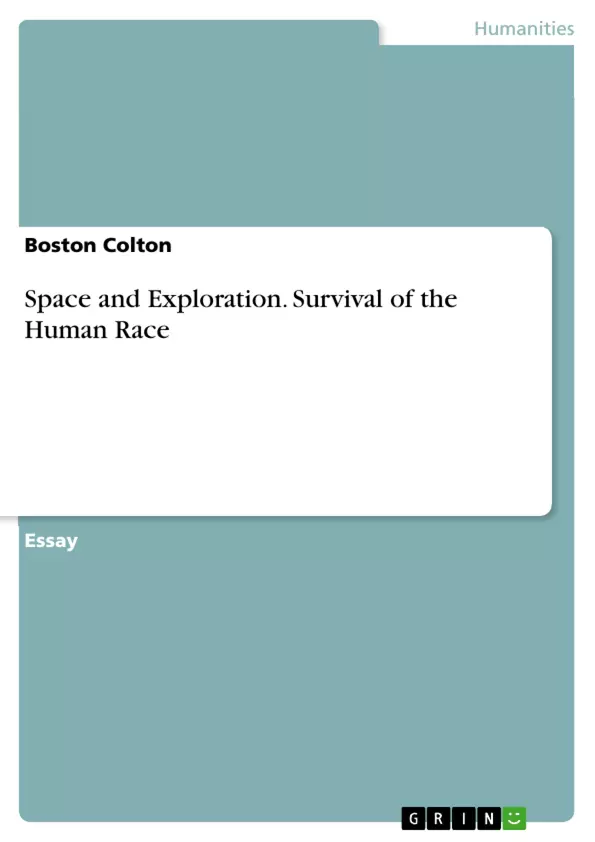The present paper argues that, due to both extraterrestrial and man-made threats, humanity should begin further developments of deep space exploration. Sources are drawn from international organizations dedicated to the research and prevention of large-scale catastrophes.
According to the United Nations Department of Economic and Social Affairs (2015), humanity will reach 9.7 billion people by 2050, a 2.2 billion jump from current estimates within the space of just 33 years. Humans are also stripping the planet of nearly all of its resources, as examined by the Sustainable Europe Research Institute (2000).
This research suggests that humans are beginning to consume more than can be produced, and in the next century, poverty and hunger rates will skyrocket. Therefore, governments across the world, both world powers and small nations, need to begin considering deep space exploration as a viable and long term solution to the strife that is to come.
Frequently asked questions
What is the central argument of the paper?
The paper argues for leaving Earth behind and beginning the colonization of nearby planets for the advancement of the human species, driven by factors like resource depletion, climate change, and extraterrestrial threats.
What are the main reasons for considering deep space exploration, according to the text?
The text cites several reasons, including the strain on Earth's natural resources, the threat of climate change, and the potential danger from extraterrestrial objects like meteors.
How does the paper connect resource depletion to space exploration?
The paper argues that the rapid consumption of natural resources on Earth is unsustainable. It proposes mining resources from the Moon and asteroids, such as Helium-3 for nuclear fusion, to address this issue.
What is the role of climate change in the argument for space colonization?
The text states that rising global temperatures and climate change-induced disasters, such as hurricanes and floods, threaten human civilization. Colonizing planets like Mars is presented as a potential escape from these climate-related issues.
How does the paper address the risk of extraterrestrial impacts?
The paper highlights the dangers posed by meteors and asteroids. It cites past events like the Siberian Explosion and emphasizes the potential for mass impacts to cause climate degradation and crop failure. It suggests that moving to another planet might reduce the probability of dying in a meteor impact. The risk of a major impact is lower, the possibility of an impact is surprisingly much higher.
What are the potential benefits of space exploration, according to the paper?
Besides escaping threats, the paper mentions several potential benefits, including international cooperation among countries like the US, Russia, and China, and the economic potential of asteroid mining for valuable resources.
What are some of the challenges and criticisms associated with space exploration mentioned in the document?
The paper acknowledges high costs, the dangers of space itself, and the effects of zero-gravity and cosmic rays on the human body as potential challenges to space exploration and colonization.
How does the paper address the potential monetary and health issues for future deep space exploration?
The paper highlights the combined funds of various space exploration programs, NASA, RFSP, and CSA, it also adds to the potential treasure to fuel these projects. The paper mentions various forms of nutritional plans, exercises, and vitamin supplements that could combat the effects of zero-gravity. It also mentions the possibility of shielding and monitoring systems to combat cosmic rays.
What is the conclusion of the paper regarding space exploration?
The paper concludes that space exploration is vital for the future of the human race. It serves as a necessary step to ensure the survivability of humanity within the universe, and calls for unity and action.
- Citation du texte
- Boston Colton (Auteur), 2017, Space and Exploration. Survival of the Human Race, Munich, GRIN Verlag, https://www.grin.com/document/354328



